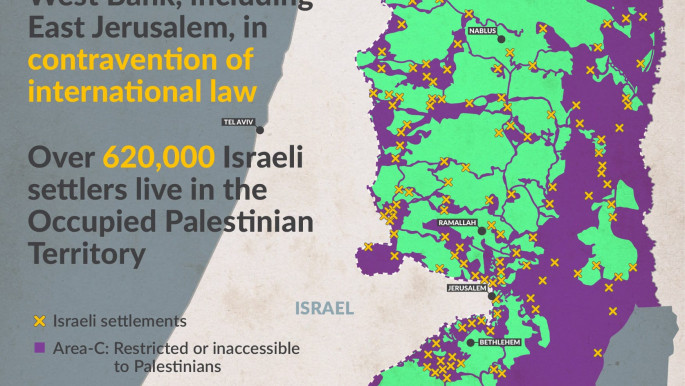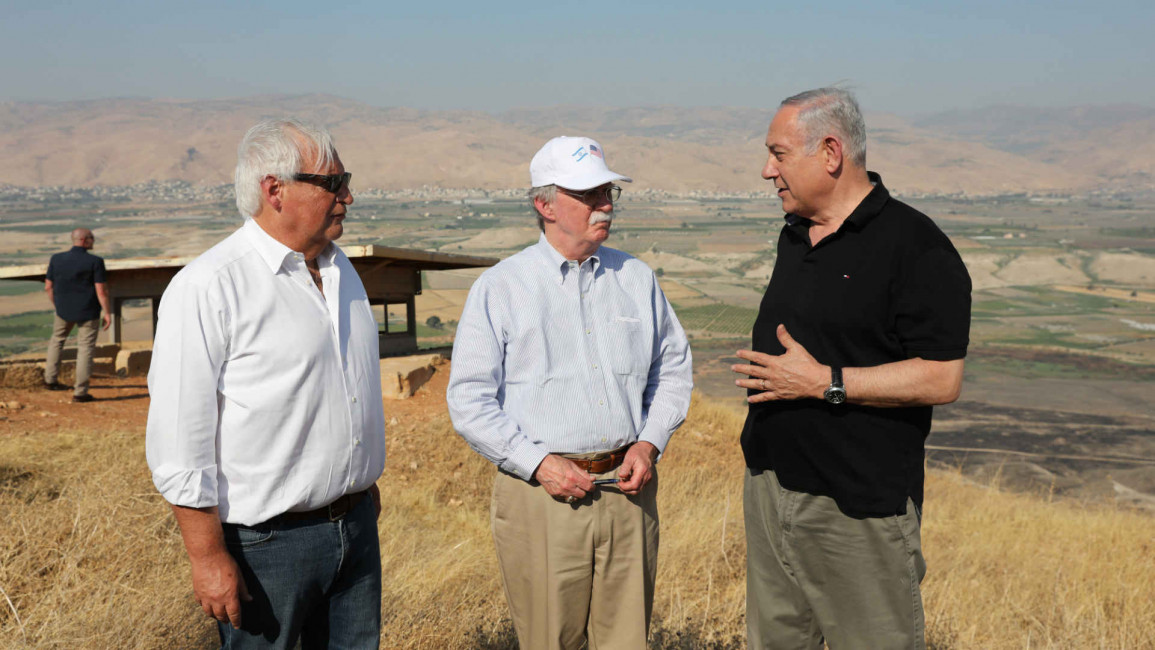Follow us on Twitter and Instagram to stay connected
Netanyahu visits West Bank settlement to celebrate US announcement which 'corrects historic injustice'
Israel's prime minister traveled to the West Bank on Tuesday to celebrate the US' shock announcement that it does not consider Israeli settlements in the occupied Palestinian territories to be a violation of international law.
Prime Minister Benjamin Netanyahu visited the Gush Etzion settlement bloc south of Jerusalem, where he told settler leaders he was "very moved" by the announcement made by US Secretary of State Mike Pompeo on Monday.
"Here we are on a historic day with another tremendous achievement for the State of Israel, which we have greatly worked for," he told them, according to a statement released by his spokesman.
"The Trump administration has corrected an historic injustice and lined up with truth and justice."
Pompeo said that after legal consultation Washington had concluded the establishment of settlements was "not, per se, inconsistent with international law".
He said that the US was not necessarily considering the settlements legal either, but instead would defer to the judgement of Israeli courts. The majority of settlers live in settlements the courts have judged legal.
|
The decision is the latest in a series of pro-Israeli moves by Donald Trump's administration, including recognising the disputed city of Jerusalem as Israel's capital.
Trump has also drawn international criticism for recognising Israeli sovereignty over the Golan Heights, seized from Syria in the Six-Day War of 1967.
It puts Washington at odds with virtually the whole of the rest of the international community and breaks with UN Security Council resolutions declaring the settlements to be illegal as they are built on occupied land.
More than 600,000 Israelis live in settlements in east Jerusalem and the West Bank, alongside more than three million Palestinians.
Until now, US policy was based, at least in theory, on a legal opinion issued by the State Department in 1978 which said that establishing of settlements in the Palestinian territories captured a decade earlier by Israel went against international law.
The Fourth Geneva Convention on the laws of war explicitly forbids moving civilians into occupied territories.
While the US has generally vetoed Security Council measures critical of Israel, previous President Barack Obama - exasperated with Netanyahu - in his final weeks in office allowed the passage of Resolution 2334 that called Israel's settlements a "flagrant violation" of international law.
Pompeo said that the United States was rejecting the Obama administration's approach, although he denied that the move was giving a green light to Israel to build more settlements.
The Palestinian Authority decried the US policy shift as "completely against international law".
Read more: Dangerous, immoral, but predictable: Palestinians react to US endorsement of Israeli settlements
The Arab League criticised Pompeo's announcement, calling it an "extremely adverse development".
The league's secretary-general, Ahmed Aboul Gheit, said the decision would result in "more violence and cruelty" against the Palestinians at the hands of the Israeli settlers and "undermines any possibility" of achieving peace.
And the European Union reiterated that it considers all settlement activity "illegal under international law".
The direct impact on the ground may be limited but analysts say it will further embolden the settlement movement and may fend off potential legal moves against Israel.
The White House says it has developed a Middle East peace peace plan, but it has not yet unveiled it. The Palestinians already have rejected the plan, accusing the US of unfair bias in favor of Israel.
 |



